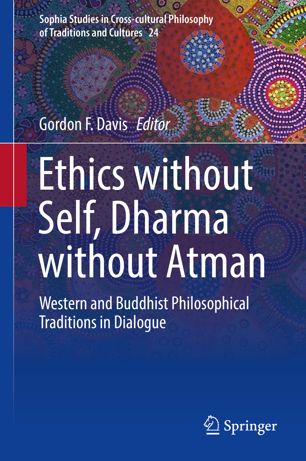

Most ebook files are in PDF format, so you can easily read them using various software such as Foxit Reader or directly on the Google Chrome browser.
Some ebook files are released by publishers in other formats such as .awz, .mobi, .epub, .fb2, etc. You may need to install specific software to read these formats on mobile/PC, such as Calibre.
Please read the tutorial at this link: https://ebookbell.com/faq
We offer FREE conversion to the popular formats you request; however, this may take some time. Therefore, right after payment, please email us, and we will try to provide the service as quickly as possible.
For some exceptional file formats or broken links (if any), please refrain from opening any disputes. Instead, email us first, and we will try to assist within a maximum of 6 hours.
EbookBell Team

4.4
42 reviewsThis volume of essays offers direct comparisons of historic Western and Buddhist perspectives on ethics and metaphysics, tracing parallels and contrasts all the way from Plato to the Stoics, Spinoza to Hume, and Schopenhauer through to contemporary ethicists such as Arne Naess, Charles Taylor and Derek Parfit. It compares and contrasts each Western philosopher with a particular strand in the Buddhist tradition, in some chapters represented by individual writers such as Nagarjuna, Vasubandhu, Santideva or Tsong Khapa. It does so in light of both analytic concerns and themes from the existentialist and phenomenological traditions, and often in an ecumenical spirit that bridges both analytic and continentalist approaches.
Some of the deepest questions in ethics, dealing with the scope of agency, value-laden notions of personhood and the nature of value in general, are intertwined with questions in metaphysics. One set of questions addresses how varying conceptions of selfhood relate to moral values (e.g. the concern of self or selves for the well-being of others); another set of questions addresses how a conception of oneself or one’s selves should or should not affect how one thinks of happiness, or eudaimonia, or – in classical Indian terms – artha, sukha or nirvana. Western philosophy has featured discussion of both, but some would argue that certain traditions of Asian philosophy have offered a more sustained and even treatment of both sets of questions. The Buddhist tradition in particular has not only featured much discussion on both fronts, but has attracted many contemporary philosophers to its distinctive spectrum of approaches, and to what is – from many ‘Western’ points of view – a seemingly subversive analysis of ego, selfhood and personhood, whether in metaphysical, phenomenological or other incarnations.